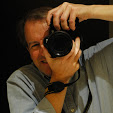In Nature vs. Nurture, a Voice for Nature
Excerpt: 'Dr. Pinker sets out his view of what science can now say about human nature. This includes many of the ideas laid out by Dr. Wilson in "Sociobiology" and "On Human Nature," updated by recent work in evolutionary psychology and other fields.
Dr. Pinker argues that significant innate behavioral differences exist between individuals and between men and women. Discussing child-rearing, he says that children's characters are shaped by their genes, by their peer group and by chance experiences; parents cannot mold their children's nature, nor should they wish to, any more than they can redesign that of their spouses. Those little slates are not as blank as they may seem.
Dr. Pinker has little time for two other doctrines often allied with the Blank Slate. One is "the Ghost in the Machine," the assumption of an immaterial soul that lies beyond the reach of neuroscience, and he criticizes the religious right for thwarting research with embryonic stem cells on the ground that a soul is lurking within.
The third member of Dr. Pinker's unholy trinity is "the Noble Savage," the idea that the default state of human nature is mild, pacific and unacquisitive. Dr. Pinker believes, to the contrary, that dominance and violence are universal; that human societies are more given to an ethos of reciprocity than to communal sharing; that intelligence and character are in part inherited, meaning that "some degree of inequality will arise even in perfectly fair economic systems," and that all societies are ethnocentric and easily roused to racial hatred.
Following in part the economist Thomas Sowell, he distinguishes between a leftist utopian vision of human nature (the mind is a blank slate, man is a Noble Savage,
traditional institutions are the problem) and the tragic vision preferred by the right (man is the problem; family, creed and Adam Smith's Invisible Hand are the solutions).
"My own view is that the new sciences of human nature really do vindicate some version of the tragic vision and undermine the utopian outlook that until recently dominated
large segments of intellectual life," he writes.'
skip to main |
skip to sidebar
Tangential and Interesting Quotes, Sketches, Theories and Surf
Tweet
Blog Archive
-
▼
2002
(70)
-
▼
September
(48)
- Photoshop Tips: Sharpening
- Struggling to Use Technology
- Books: Breaking Open the Head
- Interesting Atlantic Monthly Article: Imperfect In...
- Why we prospered
- Metafilter | Community Weblog "MetaFilter is a co...
- that's Beijing Welcome Page
- Author: James Gleick
- Digital photo tips for my head
- Dictionary.com/ethereal e·the·re·al Pronunciatio...
- Smart Mobs - The Next Social Revolution Howard Rhe...
- Dan Bricklin Log More etherea (my word) ... see e...
- David Weinberger's Weblog: About Tom Peters Excerp...
- Motorola: New chip will bring GPS to all - Tech Ne...
- Business 2.0 - Writer Profile - Thomas A. Stewart ...
- Science's 10 Most Beautiful Experiments Excerpt: "...
- BT Technology Journal Conclusion Excerpt: "We are ...
- BT Technology Journal: Environmentalism and anti-s...
- BT Technology Journal: Positive feedback Technolo...
- BT Technology Journal: What's next? Graduality Exc...
- Cycling in China and Mongolia Photos from my recen...
- Photos: Flow Album Collection of everyday 'art' ph...
- The Packaging of Video on Demand Interesting take ...
- BT Technology Journal: Networked stupidity Variou...
- Why I Blog
- Internet consultant's site Interesting. Sample (my...
- Better a diamond with a flaw than a pebble without...
- In Nature vs. Nurture, a Voice for Nature Excerpt:...
- Steves Digicams - Nikon Coolpix 5700 - User Review...
- Investment Outlook, Bill Gross, September 2002: Do...
- Nature Conservancy: Last Great Places Exhibit "In...
- The Digital Journalist Home Page Requires a bit of...
- How to make ethernet cables Detailed instructions....
- Wired 10.10: Unplugged U. Annecdotal article about...
- Interview with Mark Andreessen Short interview wit...
- Dictionary.com: Peripatetic per·i·pa·tet·ic adj...
- The Atlantic | September 2002 | A Web-only Primer...
- Welcome to Orion: The Magazine of Nature, Culture,...
- Debbie Ford :: What is Spiritual Divorce? Ha! Exc...
- Lucinda Williams
- Cycling the Manali to Leh Highway The trip I almos...
- Moutain Bike Trails Near Halifax ...
- Wikipedia
- Trends A scrap book-like page of thoughts on theme...
- Kuhn is Many Guises
- Tim O'Reilly's Blog
- Integrated Web
- Definitions: schadenfreude
-
▼
September
(48)

No comments:
Post a Comment